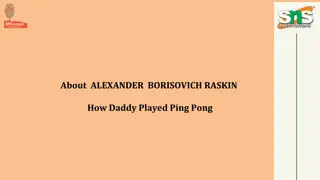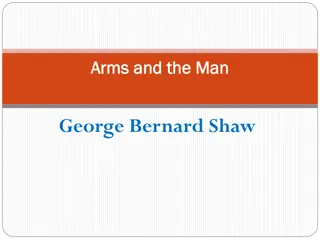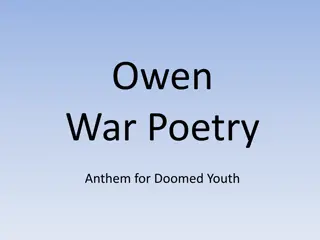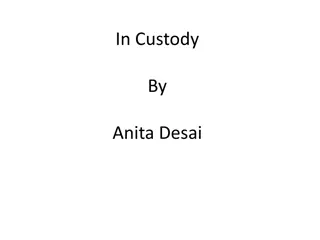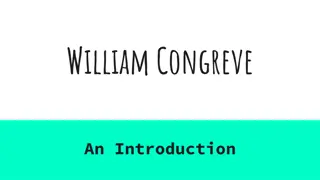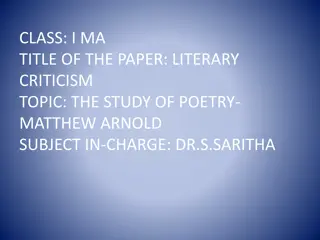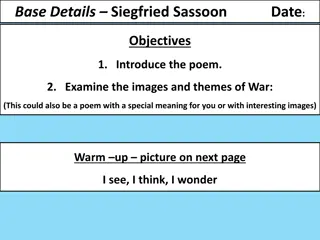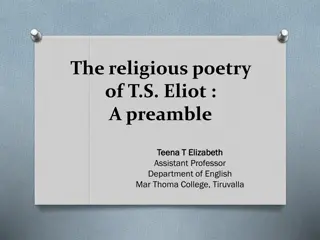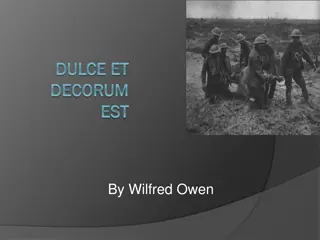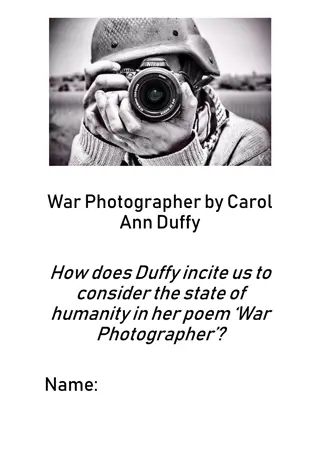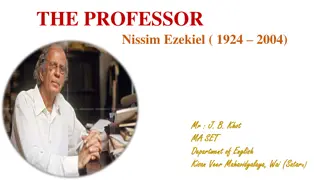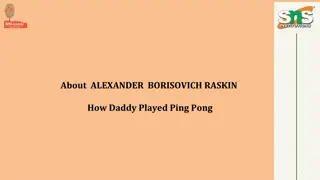Siegfried Sassoon: War Poet and Satirical Critic
Siegfried Sassoon, a British war poet and soldier, was a prominent figure in World War One. He critiqued the attitudes of senior officers through his realistic and satirical war poetry. "Base Details" by Sassoon reflects on the disconnect between frontline soldiers and base Majors. The poem highlights the Major's complacency and the soldiers' grim reality. Explore Sassoon's vivid portrayal of the contrasting roles in wartime leadership through his powerful use of language.
Download Presentation

Please find below an Image/Link to download the presentation.
The content on the website is provided AS IS for your information and personal use only. It may not be sold, licensed, or shared on other websites without obtaining consent from the author.If you encounter any issues during the download, it is possible that the publisher has removed the file from their server.
You are allowed to download the files provided on this website for personal or commercial use, subject to the condition that they are used lawfully. All files are the property of their respective owners.
The content on the website is provided AS IS for your information and personal use only. It may not be sold, licensed, or shared on other websites without obtaining consent from the author.
E N D
Presentation Transcript
Siegfried Sassoon (1886-1967) was a British war poet and soldier. He was one of the major poets of World War One, and was a close friend and influence on fellow poet Wilfred Owen. He was one of the pioneers of realism in war poetry, and also wrote bitingly about senior officers who sent others to their deaths but did not fight themselves. Although Sassoon was decorated for acts of bravery during the war, after a period of leave he decided that he could no longer support the war. He sent a declaration condemning the war and the government position to The Times, which was also read out in Parliament. Sassoon was subsequently sent to Craiglockhart Military Hospital to be treated for shell-shock. He eventually returned to fight in the war. Base Details is a satirical (mocking) poem on the attitudes of the senior officers who live at the base. The speaker imagines himself in the position of a Major, and lists the ways in which he would spend his time, eating and drinking. The poem is about the way in which those who send the young soldiers to their deaths are not directly affected by the war themselves.
War Poetry Objectives: To explore the themes in the poem To develop a response to the poem To explain the poet s use of language
Base Details by Siegfried Sassoon Base Details by Siegfried Sassoon If I were fierce, and bald, and short of breath, I'd live with scarlet Majors at the Base, And speed glum heroes up the line to death. You'd see me with my puffy petulant face, Guzzling and gulping in the best hotel, Reading the Roll of Honour. "Poor young chap," I'd say--"I used to know his father well; Yes, we've lost heavily in this last scrap." And when the war is done and youth stone dead, I'd toddle safely home and die--in bed. The poem describes two types of people: Army Majors and soldiers
Create a key: 1 colour for Major 1 colour for Soldier If I were fierce, and bald, and short of breath, I'd live with scarlet Majors at the Base, And speed glum heroes up the line to death. You'd see me with my puffy petulant face, Guzzling and gulping in the best hotel, Reading the Roll of Honour. "Poor young chap," I'd say--"I used to know his father well; Yes, we've lost heavily in this last scrap." And when the war is done and youth stone dead, I'd toddle safely home and die--in bed. Highlighting
Look back at our objectives. Copy and complete the table below. You need to add in: 2 extra words/ phrases about the Major, and All the explanations that are missing Words/ Phrases This suggests... Describing the majors Fierce The soldiers are afraid of them Short of breath They are fat, unfit Toddle Describing the soldiers glum They are tired, fed up and have no hope Heroes Youth stone dead
Task Using the description given in the poem, draw the Major and soldiers described. Add quotes from the poem.



